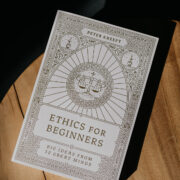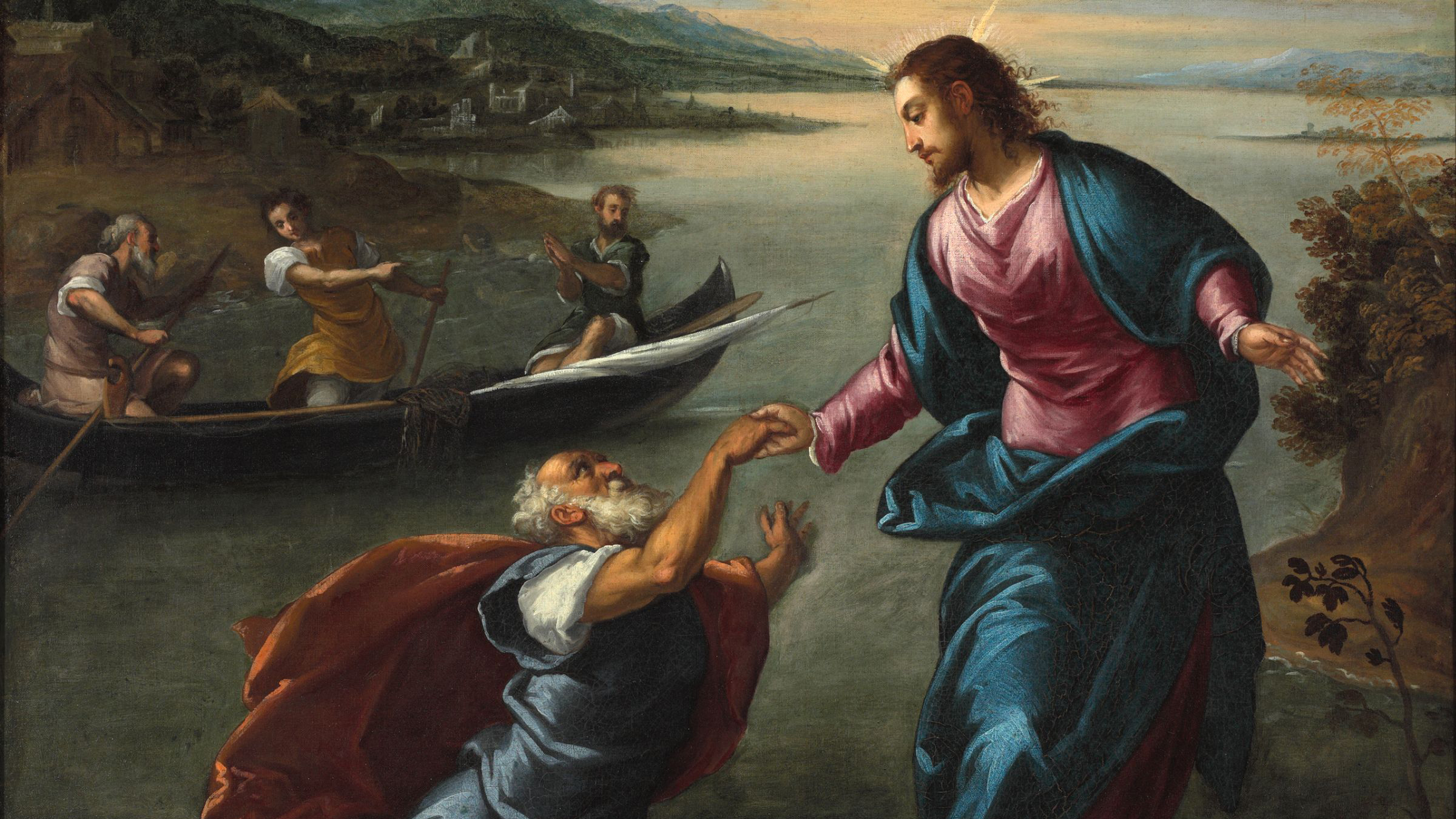Now as an elder myself and a witness of the sufferings of Christ, as well as one who shares in the glory to be revealed, I exhort the elders among you to tend the flock of God that is in your charge, exercising the oversight, not under compulsion but willingly, as God would have you do it—not for sordid gain but eagerly. Do not lord it over those in your charge, but be examples to the flock. 4 And when the chief shepherd appears, you will win the crown of glory that never fades away. In the same way, you who are younger must accept the authority of the elders. And all of you must clothe yourselves with humility in your dealings with one another, for
“God opposes the proud,
but gives grace to the humble.”Humble yourselves therefore under the mighty hand of God, so that he may exalt you in due time.
1 Pet. 5:1–6
St. Peter here applies the most basic and universal principle of life in Christ to “the elders [i.e., the bishops] among you.” Before we meditate on his instructions, we who are not bishops should be gravely warned to resolve to resist the devil’s temptation to use this passage as an occasion for the sin of looking down on those bishops of our day whom we deem to have failed to obey the principle St. Peter states in this divinely inspired passage. Even if we honestly think of “bad bishops” as “blind guides of the blind” (Matt. 15:14)—which they indeed can be and all too often have proved to be—we should never for one moment forget that all souls, including ours, are battlefields between good and evil, and that the self-righteousness that is always unconscious and never conscious, but is always lurking and somehow operative in that judgment because it violates Christ’s own command to “not judge” (Matt. 7:1), proves that we too are among the blind and that the log that is present in our own eye prevents us from accurate vision of the splinters in others’ eyes.
It is like the Heisenberg Uncertainty Principle in the soul. Heisenberg proved that our act of observing a subatomic particle’s position interferes with the accurate observation of its velocity, and vice versa. In other words, our human and limited eyes get in the way of their very own seeing on the lowest, most material level; so we should not be surprised to find that true also on the highest, spiritual level. Only God can be totally objective because he is the “I Am,” the ultimate subject, or observer.
Humility is the very grammar of being: God is the noun and we are the adjectives, not vice versa.
The principle that St. Peter applies here especially to bishops also applies to all Christians, for the Church is egalitarian as well as hierarchical. Even though the hierarchical order of authority and obedience is divinely mandated in the Church, the state, the family, and the individual soul, it is also true that the principles of life in the Body of Christ—what we might call his spiritual DNA—are equally present and authoritative for each cell in that body—bishop, priest, or lay person. And that is true of the principle St. Peter states here, which may be called the principle of the authority of humility.
Humility does not mean having a low opinion of ourselves; it means having no opinion of ourselves. It means using our eyes as they were designed to be used: to look and love outward, to God and neighbor, to be freed from that agonizing shadow of self-consciousness and self-judgment that clouds our happy vision of the Son-light. Let the Son pierce through those clouds. See him in all things, even when he walks on the stormy waters. Believe his word: “It is I; do not be afraid” (John 6:20).
All of life, and every story within it, both real and fictional, consists of two parts: challenge and response, problem and solution, question and answer, seeking and finding, darkness and light. One property of the virtue of humility is the willingness to trust the Storyteller, to say “Thy will be done” to the storm as well as the calm, the suffering as well as the glory, because we see Our Lord in both.

St. Peter says that the fact that he is “a witness of the sufferings of Christ” is what qualifies him to be a partaker “in the glory to be revealed.” That is why he says to his fellow bishops, with the authority Christ gave to his Apostles, “Whoever listens to you listens to me” (Luke 10:16), not to “rule” the flock but to “tend the flock of God that is in your charge, exercising the oversight, not under compulsion but willingly. . . . Do not lord it over those in your charge, but be examples to the flock”—examples of humility, the humility of Christ himself. For Christ is not only our model to imitate and our standard for judgment, but also the pattern, the strategy, the reason, the “logos,” of everything God does with us, for “God opposes the proud, but gives grace to the humble” (James 4:6). Humility is the very grammar of being: God is the noun and we are the adjectives, not vice versa.
Not only is this “weakness” the way to true power, not only is this “failure” the way to true success, not only is this suffering the way to true happiness, but, even more, to something far greater than happiness—namely, glory, “an eternal weight of glory beyond all measure” (2 Cor. 4:17). “Humble yourselves therefore under the mighty hand of God, so that he may exalt you in due time.”
It must happen “in due time,” not instantly. For time is in our very being, so it must take time for this “unfading crown of glory” to be revealed. That is why hope, the most time-bound of the virtues, is one of the three greatest things in the world.
Peter Kreeft’s latest book, Socrates’ Children, is available now in the Word on Fire Bookstore.
